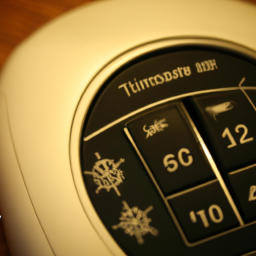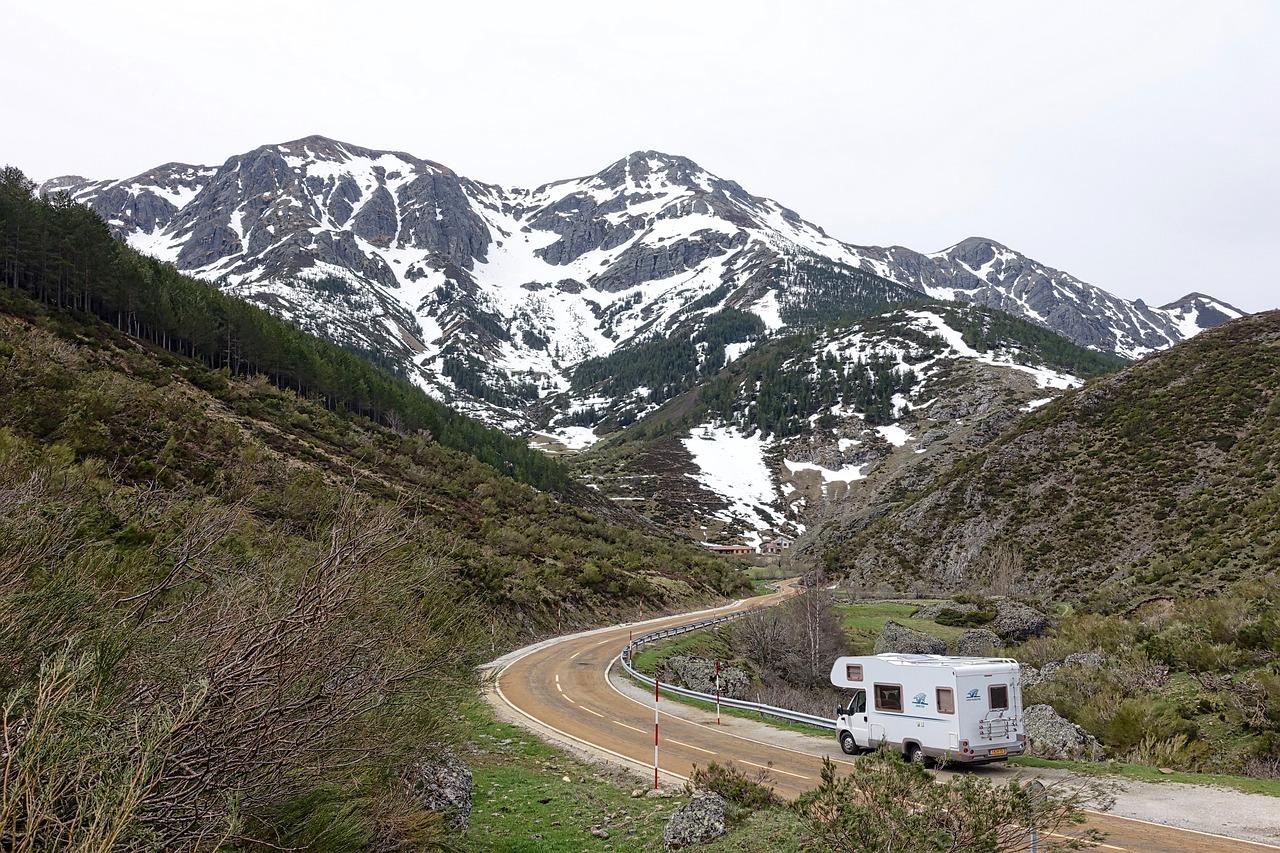
Imagine a country where during the winter season, heating your home becomes a legal obligation. Well, that country exists, and it is none other than France. The France Winter Law, which requires property owners to maintain a comfortable indoor temperature, has stirred up quite a debate. As temperatures drop, this groundbreaking legislation is causing both excitement and concern among citizens. In this article, we will explore the implications of the France Winter Law and its potential impact on the lives of the French people.
Overview of France Winter Law
Definition of France Winter Law
France Winter Law, also known as the “Loi Élan” or the “Law on Energy and Climate”, is a legislation implemented in France with the objective of ensuring adequate heating provisions in rented properties during the winter season. This law sets certain obligations for landlords and grants rights to tenants in order to protect them from extreme cold temperatures.
Purpose of the Law
The primary purpose of the France Winter Law is to prioritize the well-being and safety of tenants, particularly during the colder months. It aims to prevent situations where individuals living in rented properties are exposed to excessively low temperatures, which can have detrimental effects on their health and quality of life. By enforcing heating requirements, the law seeks to create a more comfortable and habitable living environment for tenants.
Key Stakeholders Involved
Various stakeholders are involved in the implementation of the France Winter Law. These include government bodies responsible for formulating and enforcing the legislation, landlords who must comply with the obligations set by the law, and tenants who benefit from the rights granted to them. Other stakeholders may include housing associations, advocacy groups, and professionals in the fields of real estate and property management.
Historical Context of France Winter Law
Origins and Reasons for Implementation
The origins of the France Winter Law can be traced back to the early 20th century, during a time when social issues were gaining more prominence in French society. The implementation of this law was driven by a combination of factors, including the need to address housing inequalities, protect vulnerable populations, and regulate the rental market.
Over the years, the law has been refined and amended to adapt to changing societal needs and advancements in technology. Increasing awareness about the importance of energy conservation and concerns about climate change have also influenced amendments to the legislation.
Key Changes and Amendments Over Time
Since its inception, the France Winter Law has undergone several significant changes. Notably, in recent years, the legislation has been updated to align with the country’s goals of reducing greenhouse gas emissions and transitioning to a more sustainable energy future. Amendments have introduced stricter energy efficiency requirements for rented properties and incentivized the adoption of renewable energy sources for heating.
The law has also responded to evolving societal dynamics, such as the increasing number of individuals living in rented accommodation and the need to protect vulnerable populations. Amendments have aimed to further safeguard the rights of tenants and ensure that landlords fulfill their obligations regarding heating provisions.
Rules and Regulations in France Winter Law
Provision of Heating in Rented Properties
The France Winter Law mandates that landlords must provide appropriate heating in all rented properties during the winter season. The law specifies minimum temperature thresholds that must be maintained within the property to ensure the comfort and well-being of tenants.
Obligation for Landlords
Landlords are legally obliged to ensure that heating systems are properly installed, regularly maintained, and in good working condition. They must also cover the costs associated with heating provision, including fuel or energy expenses. Landlords are required to provide documentation proving regular maintenance and are encouraged to use energy-efficient heating systems to reduce environmental impact.
Rights of Tenants
Under the France Winter Law, tenants have the right to expect a habitable living environment that meets minimum standards of comfort. If heating provisions are inadequate or malfunctioning, tenants have the right to request repairs or remedial actions from their landlords. In cases where landlords fail to address heating-related issues, tenants may seek legal recourse to enforce their rights.
Enforcement of France Winter Law
Responsible Governance Bodies
The enforcement of the France Winter Law is carried out by various governing bodies at different levels. These include national, regional, and local authorities responsible for housing and energy regulations. These bodies are tasked with monitoring compliance with the law and taking appropriate action against landlords who fail to fulfill their obligations.
Methods of Enforcement
To ensure compliance, the governing bodies conduct regular inspections of rented properties, especially during the winter season. Inspectors assess the heating systems, measure indoor temperatures, and verify compliance with the law’s requirements. In cases of non-compliance, landlords may be issued warnings, fines, or even face legal consequences.
Penalties for Non-Compliance
Penalties for non-compliance with the France Winter Law vary depending on the severity and frequency of the violation. Landlords who repeatedly fail to provide adequate heating or neglect their obligations may face substantial fines and potential suspension or revocation of their rental property licenses. These penalties are designed to incentivize landlords to prioritize the well-being of their tenants and comply with the law.
Relation of France Winter Law with Energy Conservation
Implications for Energy Usage
The France Winter Law has significant implications for energy usage in the country. By promoting the provision of heating in rented properties, the law aims to reduce energy poverty and ensure that all individuals have access to a warm and comfortable living environment. This increased demand for heating can have an impact on overall energy consumption, particularly during the winter months.
Energy Efficiency Measures in Housing
To address energy usage concerns, the France Winter Law also incorporates provisions for improving energy efficiency in rented properties. Landlords are encouraged to adopt energy-efficient heating systems and implement insulation measures to reduce heat loss. These measures not only contribute to lowering energy consumption but also align with France’s broader objectives of reducing carbon emissions and combating climate change.
Cases and Examples Related to France Winter Law
Citations of the Law in Legal Disputes
The France Winter Law has been cited in numerous legal disputes, particularly in cases where tenants have sued landlords for failing to provide adequate heating during the winter season. These cases often involve claims for compensation, repairs, or termination of rental agreements. The law serves as a legal basis for tenants to assert their rights and seek remedies for the violation of their living conditions.
Infamous Cases
While specific infamous cases related to the France Winter Law are limited, there have been instances where landlords have faced significant repercussions for non-compliance with the legislation. These cases have shed light on the importance of enforcing heating provisions and ensuring the protection of tenant rights.
Real-Life Experiences of Tenants and Landlords
The France Winter Law has had tangible effects on the lives of tenants and landlords. Many tenants have reported improved living conditions and increased comfort due to the enforcement of heating provisions. However, there have also been instances where landlords have expressed concerns about the financial burden of complying with the law, particularly in cases where outdated or inefficient heating systems need to be replaced.
Effectiveness and Impact of France Winter Law
Analysis of Law’s Effectiveness
The effectiveness of the France Winter Law can be evaluated by assessing various factors, including compliance rates, improvements in living conditions, and overall tenant satisfaction. While specific data may vary, there is evidence to suggest that the legislation has had a positive impact in terms of ensuring heating provisions and protecting tenant rights. However, continuous monitoring and evaluation are necessary to identify areas for improvement.
Assessment of Impact on Tenants and Property Owners
From the perspective of tenants, the France Winter Law has undoubtedly provided increased protection and improved living conditions. The obligation for landlords to provide adequate heating has resulted in a higher standard of livability during the winter season, particularly for vulnerable populations. However, property owners and landlords may experience financial challenges and additional responsibilities in ensuring compliance, which can impact their bottom line.
Criticism and Controversy Surrounding France Winter Law
Debates Around the Law
The France Winter Law has not been without its share of criticism and debates. Some argue that the law places an unfair burden on landlords, particularly small property owners, by requiring costly upgrades to heating systems. There are also ongoing discussions about striking the right balance between tenant protection and the financial responsibilities of property owners.
Critics and Their Arguments
Critics of the France Winter Law argue that the legislation fails to consider the financial constraints of landlords and may discourage property owners from investing in rental properties. They suggest that alternative approaches, such as tax incentives or targeted financial assistance, should be explored to address the issue of inadequate heating provision without imposing excessive burdens on landlords.
Comparison of France Winter Law to Legislation Elsewhere
Similar Laws in Other Countries
Several countries have implemented similar laws to address heating provisions in rented properties. For example, the United Kingdom has the “Minimum Energy Efficiency Standards” legislation, which mandates landlords to ensure a minimal level of energy efficiency in rental properties. Germany also has regulations in place to protect tenants from inadequate heating during the winter months.
Unique Aspects of France’s Law
France’s Winter Law stands out for its comprehensive approach to heating provisions and tenant rights. The combination of specific temperature thresholds, requirements for regular maintenance, and emphasis on energy efficiency sets it apart from similar legislation elsewhere. France’s focus on aligning the law with broader energy and climate objectives further distinguishes its approach to ensuring heating provisions in rented properties.
Future Implications and Forecast Regarding the France Winter Law
Possible Changes to Law
The France Winter Law is likely to continue evolving in response to changing societal needs, technological advancements, and environmental considerations. Future changes could include stricter energy efficiency requirements, increased financial support for landlords, and the adoption of innovative solutions to provide heating in rented properties. It is essential to strike a delicate balance between tenant protection and the practical considerations of property owners.
Foreseen Impacts on Society and Environment
The future impacts of the France Winter Law are expected to be twofold. Societally, the law will continue to improve living conditions and protect vulnerable populations during the winter season. It will contribute to reducing energy poverty and ensuring that all individuals have access to a habitable living environment. Environmentally, the law’s focus on energy efficiency and adoption of renewable energy sources for heating will support France’s broader sustainability goals and contribute to greenhouse gas emissions reduction.
In conclusion, the France Winter Law plays a crucial role in safeguarding the rights and well-being of tenants in rented properties during the winter season. By setting heating provision requirements and obligations for landlords, the law ensures adequate living conditions and protection from extreme cold temperatures. While the law has faced criticism and debates, its effectiveness and impact on tenants and property owners cannot be overlooked. The France Winter Law serves as a benchmark legislation for other countries seeking to address heating provisions and tenant rights, with a focus on energy conservation and sustainable practices. As the law continues to evolve and adapt, it is essential to find a balance that prioritizes tenant protection while considering the practical and financial considerations of property owners.

